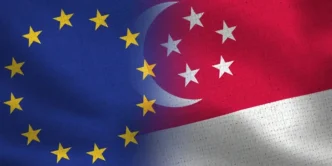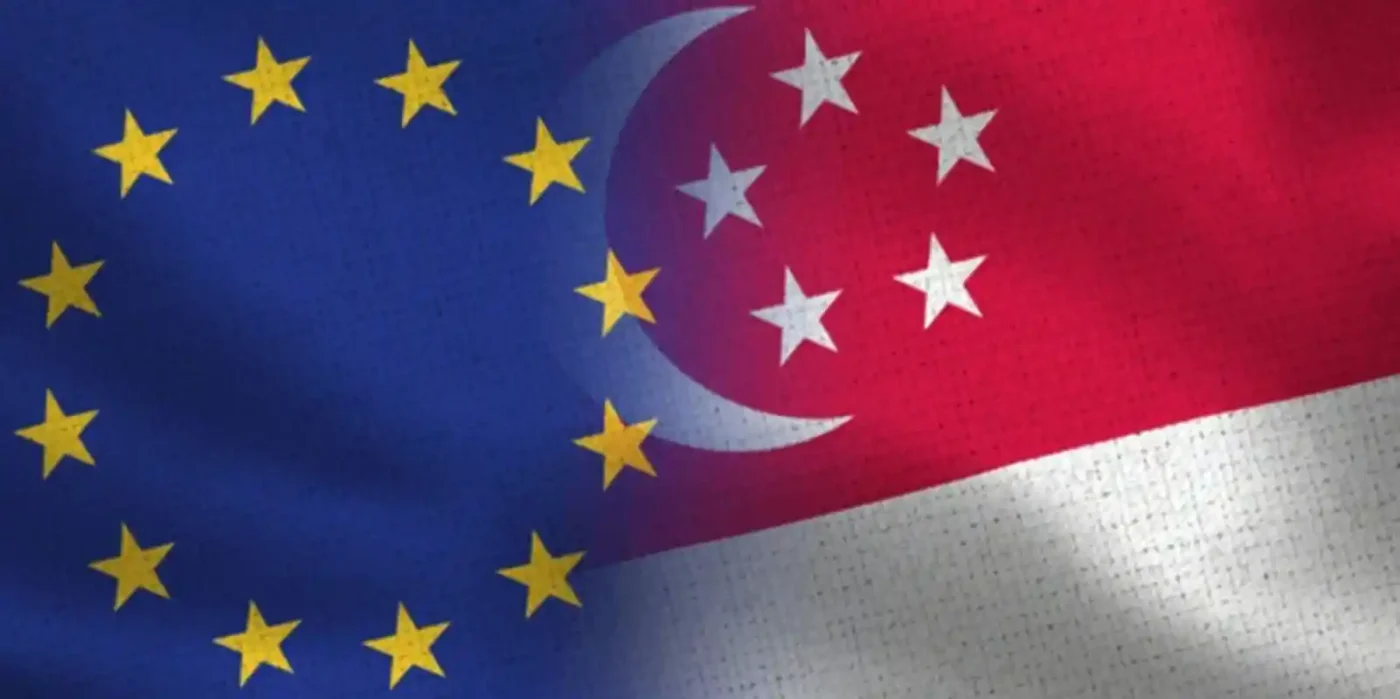Singapore and the European Union have signed a landmark digital trade agreement, a move that deepens economic ties between the two regions at a time of heightened global uncertainties. Announced on May 24, 2025, the pact aims to streamline cross-border data flows, enhance digital trust, and foster cooperation in emerging technologies. As geopolitical tensions and economic challenges continue to reshape international trade, this agreement signals a shared commitment to leveraging digital innovation as a driver of stability and growth.
A Strategic Partnership in the Digital Age
The Singapore-EU Digital Trade Agreement, signed during a high-level bilateral meeting, establishes a framework for harmonizing rules on data protection, e-commerce, and cybersecurity. This comes as both regions seek to navigate a fragmented global economy marked by supply chain disruptions and rising protectionism. Singapore, a global hub for technology and trade, and the EU, a regulatory powerhouse, are positioning themselves as leaders in shaping the future of digital commerce.
Officials from both sides hailed the agreement as a significant step forward. “This pact is about building bridges in the digital realm” said a spokesperson for Singapore’s Ministry of Trade and Industry. “It ensures that businesses, big and small, can operate seamlessly across borders while maintaining trust and security.” Meanwhile, an EU representative emphasized the importance of shared values, stating, “Data protection and innovation go hand in hand, and this agreement reflects our mutual commitment to both.”
The deal builds on the existing Singapore-EU Free Trade Agreement, which came into force in 2019, and extends cooperation into the rapidly evolving digital sphere. Key provisions include mutual recognition of digital identities, simplified customs procedures for e-commerce, and joint efforts to combat cyber threats. For Singapore, a nation that handles a significant share of global data traffic through its advanced infrastructure, the agreement reinforces its status as a digital gateway in Southeast Asia.
Addressing Global Uncertainties
The timing of the pact is no coincidence. With trade wars, geopolitical rivalries, and the lingering effects of the pandemic disrupting global markets, both Singapore and the EU face mounting pressure to secure economic resilience. The digital economy, projected to account for a growing share of global GDP, offers a pathway to mitigate some of these risks. According to a recent report by the World Economic Forum, digital trade could contribute up to US$1.5 trillion to global GDP by 2030 if barriers are reduced.
For the EU, the agreement is part of a broader strategy to diversify its trade partnerships amid tensions with major powers like China and the United States. The bloc has been pushing for stronger ties with ASEAN nations, viewing Singapore as a critical entry point to the region. The city-state’s strategic location, robust legal framework, and tech-savvy workforce make it an ideal partner for testing and scaling digital trade initiatives.
Singapore, on the other hand, benefits from access to the EU’s vast market of over 440 million consumers. Local businesses, particularly in fintech and logistics, stand to gain from reduced regulatory hurdles and enhanced data-sharing protocols. “This is a game-changer for our startups” said a Singapore-based tech entrepreneur. “We can now scale into Europe with greater confidence, knowing there’s a framework to support us.”
However, challenges remain. Analysts caution that aligning regulatory standards between Singapore’s agile, business-friendly approach and the EU’s stringent data protection laws, such as the General Data Protection Regulation (GDPR), will require ongoing dialogue. If unresolved, discrepancies could create friction for businesses operating across both jurisdictions. Still, the commitment to regular consultations embedded in the agreement offers a mechanism to address such issues as they arise.
Implications for the Digital Economy
The Singapore-EU pact arrives at a pivotal moment for the global digital economy. As nations grapple with the ethical and security implications of technologies like artificial intelligence and blockchain, international cooperation has become more critical than ever. The agreement includes provisions for joint research and development in these areas, positioning both regions at the forefront of technological innovation.
For consumers, the pact promises greater access to digital goods and services. Cross-border e-commerce is expected to flourish as customs processes are streamlined and trust in digital transactions grows. A Singaporean e-commerce platform executive noted, “This agreement will make it easier for us to offer European products to our customers, and vice versa, without the usual red tape.”
Moreover, the focus on cybersecurity cooperation is a response to the rising tide of cyber threats facing both regions. High-profile data breaches and ransomware attacks have underscored the need for robust defenses in an increasingly interconnected world. By sharing best practices and intelligence, Singapore and the EU aim to create a safer digital environment for businesses and individuals alike.
Regional and Global Ripple Effects
The agreement is likely to have a ripple effect across Southeast Asia, where digital trade is gaining momentum. Other ASEAN nations, such as Malaysia and Vietnam, may look to emulate Singapore’s model of forging bilateral digital pacts with major economies. This could accelerate the region’s integration into the global digital economy, though it also raises questions about disparities in technological readiness among ASEAN members.
On a global scale, the Singapore-EU pact sets a precedent for how digital trade agreements can serve as a counterbalance to geopolitical instability. Unlike traditional trade deals, which often focus on physical goods, digital agreements address intangible yet increasingly valuable assets like data and intellectual property. If successful, this model could inspire similar partnerships elsewhere, potentially reshaping the architecture of international trade.
Critics, however, warn against over-optimism. Some EU-based privacy advocates have expressed concern that the agreement might prioritize economic gains over data protection, given Singapore’s less stringent privacy laws compared to GDPR. “We must ensure that this pact doesn’t become a loophole for bypassing European standards” said a Brussels-based activist. These concerns highlight the delicate balance between fostering innovation and safeguarding rights in the digital age.
A Broader Vision for Cooperation
Beyond trade, the agreement reflects a shared vision for addressing broader global challenges. Both Singapore and the EU have committed to exploring how digital tools can support sustainability goals, such as reducing carbon footprints through smart logistics and supply chain innovations. This aligns with Singapore’s Smart Nation initiative and the EU’s Green Deal, underscoring the potential for digital trade to contribute to environmental objectives.
Additionally, the pact opens the door to collaboration on workforce development. Joint programs to upskill workers in digital competencies are on the table, ensuring that the benefits of the digital economy are widely shared. For Singapore, where a highly skilled workforce is a key competitive advantage, such initiatives could further solidify its position as a regional talent hub.
Looking Ahead
As the Singapore-EU Digital Trade Agreement takes effect, its success will depend on how well both sides can translate commitments into tangible outcomes. Businesses, policymakers, and citizens alike will be watching closely to see if this partnership can deliver on its promise of fostering growth while navigating the complexities of the digital landscape.
For now, the agreement stands as a beacon of cooperation in an uncertain world. Whether it can serve as a blueprint for future digital trade pacts remains an open question, but it undeniably marks a bold step toward a more connected and resilient global economy.















